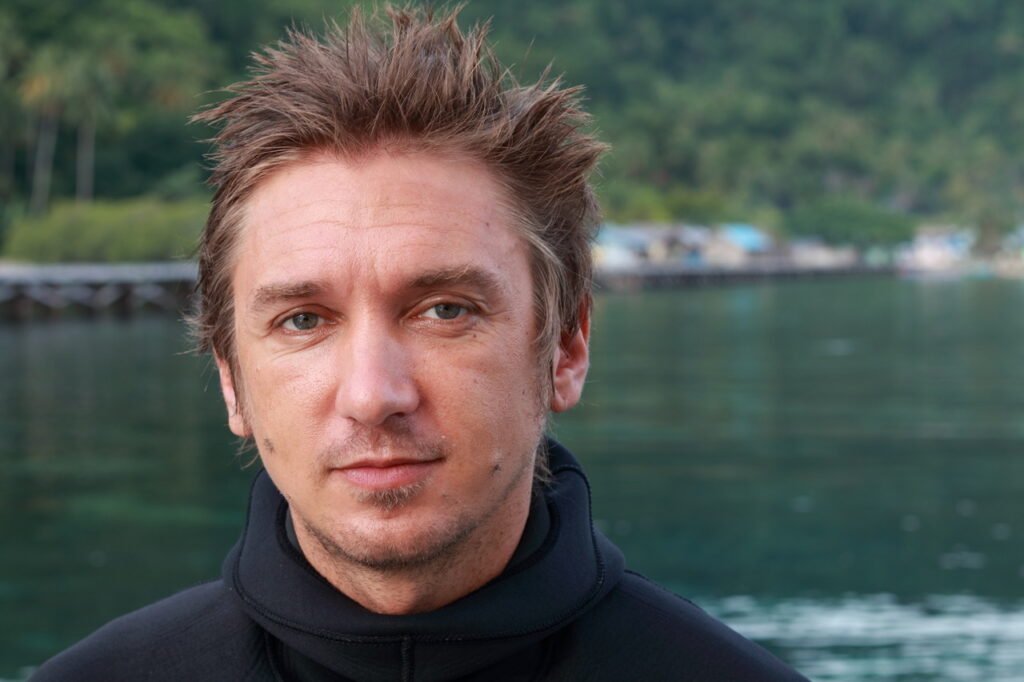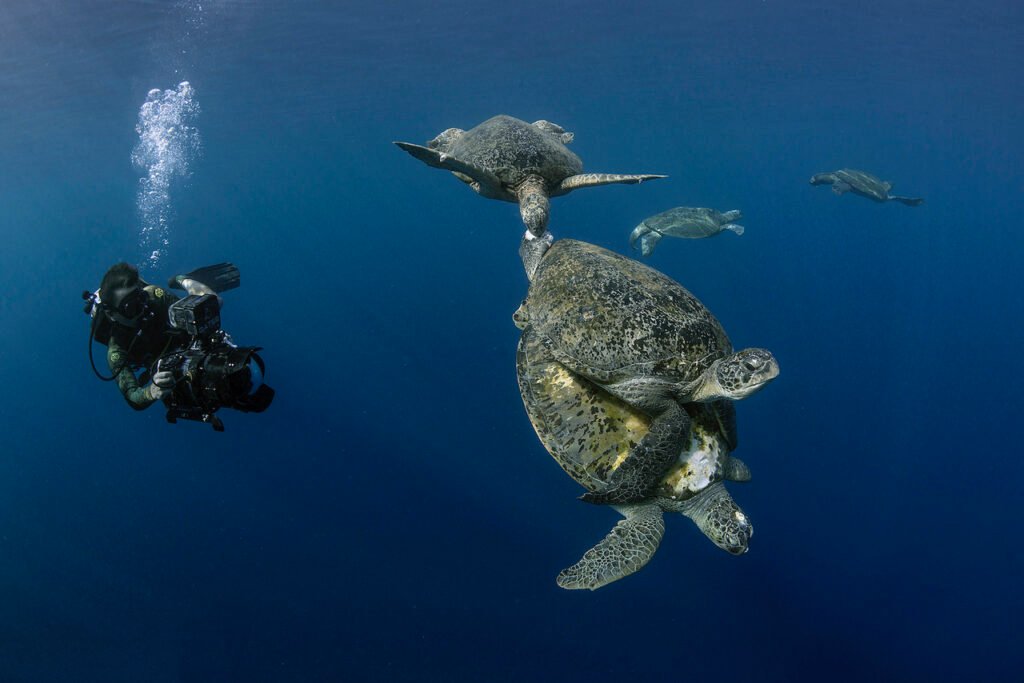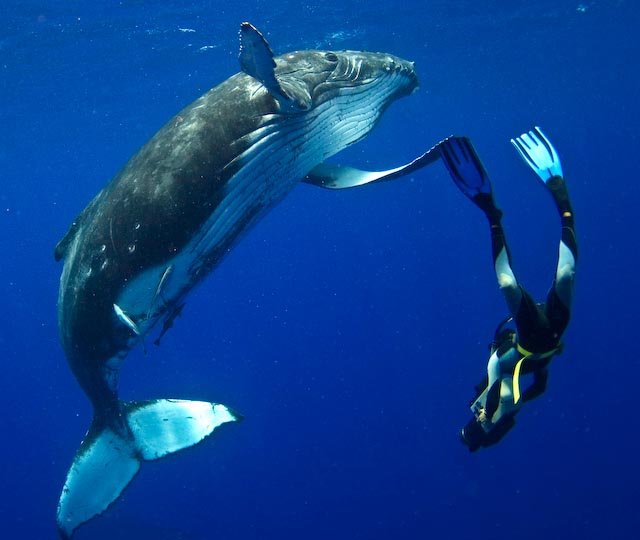Roger is a British underwater cameraman with Emmy™ and BAFTA awards to his name. Now based in Sabah, Malaysia, he’s a seasoned Director of Photography (DOP) specializing in underwater filming, with over 30 Natural History Ocean Sequences captured over the past 20 years.
Despite advancements in underwater filming technology, Roger still swears by five simple rules that keep his shots sharp and respectful to marine life, like “Zoom with your feet” and “Keep the sun behind you.” These tips are a must for both newcomers and experienced divers. Read the full article to dive deeper into Roger’s essential underwater filming tips.


Can you share a bit about yourself and your connection to the ocean?
My name is Roger Munns. I am a wildlife cinematographer with a focus on marine life. I was one of the principal cinematographers on Blue Planet II and have worked on several other Attenborough landmarks for the BBC. I grew up on the wild Atlantic coast of Cornwall in the UK but have been based in Malaysia for the past 20 years.
What’s your most unforgettable ocean memory?
My standout memory was filming and freediving with a humpback whale calf in Tonga during the making of ‘Life’ for the BBC. The encounter lasted over an hour and the calf was incredibly friendly. It was like playing with a puppy the size of an elephant! Read more here. I think marine mammals make possibly the best encounters as they have so much awareness and emotional intelligence compared to most fish-life.

“Underwater cameraman Roger Munns set himself and his team an incredible challenge. In 2008, they visited Tonga to film the biggest courtship ritual of the animal kingdom, the humpback heat run, for the very first time underwater and up close.” Listen to the amazing audio from the experience:
Where can people explore more of your work and stories?
I have a blog on my website and I have an instagram account where I share images and stories from my work @roger.munns
Is there an ocean skill you’ve always wanted to learn?
My next course will probably be mixed gases for my rebreather. I would like to learn to be able to use helium so I can film down in the depths at 40-100m. there are so many stories waiting to be told down there!
Which ocean enthusiasts or profiles do you admire? We’d love to give them a shoutout!
There are a lot of inspirational ocean people out there. I would say I gravitate to fellow cinematographers and NGO’s on instagram: @rogerhorrocks @mantatrust @jchauser
What’s the ultimate marine destination on your bucket list?
The Galapagos is still top of my wish list. I once had to turn down a job there due to a schedule clash and it was heartbreaking!
Is there anything else you’d like to share? The floor is yours!
My favourite marine megafauna are manta rays. I’m very proud to be an ambassador for the Manta Trust and I heartily recommend that you check out their amazing conservation and educational work. Freediving or snorkelling with huge numbers of 4-5 wide mantas in hanifaru bay, Maldives is another highlight of my career and something I wish everyone could experience.

